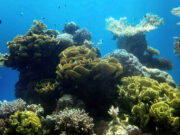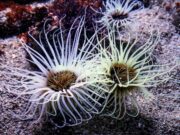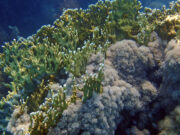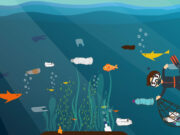We all know that our oceans have become a dumping ground for rubbish and our coastlines are covered in plastic. It’s been all over the news, televised in programmes like Blue Planet, and even injected into most political speeches. Scientists have proved that around a truck full of rubbish ends up in the ocean every minute. We are suffocating our planet in the waste we’re producing. But how does it end up in our oceans?
In this article we will be looking at the waste we produce, how it ends up in our oceans, and how we can stop this from happening.
How Does Rubbish End Up in Our Oceans?
The sheer amount of rubbish that ends up in our oceans is horrifying. In fact, it is estimated that roughly 80% of human waste in the sea has come from the land to begin with.
Plastic Waste Can be Lost in Transportation
Whenever plastic waste is collected and transported to landfill sites, there is always a risk of the waste escaping into the environment. Even when our waste has been transported and thrown into landfills, plastic and other light items are at risk of blowing away and ending up in rivers and eventually oceans.
Plastic Litter is a Significant Problem
One of the actions that most puts our oceans at risk is littering. That is plastic that hasn’t been collected or has been dropped on streets. These littered items can be carried around by wind and rain, transported into our drainage networks or rivers and washed out to sea.
It is estimated that around 1.15-2.41 million tons of plastic are carried into the sea every year. That’s the same amount of rubbish that could be transported by up to 100,000 rubbish trucks! Holidaymakers leaving litter behind, homeowners not recycling, people throwing litter in the street are polluting the environment and the world’s oceans with litter.
Plastics that Go Down the Drain
One of the ways plastics end up in the oceans is by being washed down the drain. Many people do not realise this, but there are microplastics found in many of the products we use around our homes. From personal care products such as face scrubs and shower gels, to cosmetic products such as toothpastes, many of these products are full of microbeads too small to be filtered out by treatment plants.
Plastics Flushed Down the Toilet
Another way waste from our homes ends up in the oceans is by people flushing items down the toilet. Plastic items such as cotton buds, facewipes, sanitary products, and so many more are often flushed into our drainage systems and pose a significant risk to the health of our oceans.
Rubbish Ends Up in the Oceans because of Us
The bottom line is that rubbish ends up in the oceans because of us and our careless ways. Whether we purposely litter or not, there is always a chance that the plastic products we’ve used and then thrown away have ended up in the oceans. So, one of the best ways to reduce waste and prevent it from entering the oceans is by making some small daily changes.
Reduce Your Usage of Plastic Products
Plastic is one of the most significant and serious pollutants in the oceans. Plastics that can end up in oceans can kill tens of thousands of marine animals every single year. So, to limit your contribution to this problem, start reducing the amounts of plastics you use. You can do this in many ways, including using reusable water bottles, storing food in non-disposable containers, using tote bags instead of plastic, and recycling wherever possible.
Help to Care for the Beaches
One of the many ways you can reduce plastic from entering the ocean is by helping to take care of the beaches near you. Whether you enjoy visiting the beach on holiday surfing, diving, or enjoying a BBQ with friends – clean up after yourself. You can even take it one step further by encouraging others to respect the environment and by participating in local plastic clean-up projects. Help keep the litter off the beaches and reduce the plastic problem in our oceans today.
Purchase Products that Do Not Harm the Environment
A positive move in recent months was a ban on microbeads in rinse-off cosmetic and cleaning products introduced by the UK Government, so that these small plastic beads will no longer get washed down the sink and out into our oceans, but there are many more items that can also contribute to the problem.
There are many household products for sale that contribute to the harming of fragile coral reefs and marine populations. These products state on the packaging that the contents are ‘harmful to aquatic life’. Avoid purchasing such products and instead opt for environmentally-friendly alternatives that are just as effective but without the harmful side effects.
Support Organisations Protecting the Oceans
Another great way to help prevent the plastic pollution problem is to support organisations fighting to clear plastic from the oceans and protect ocean habitats and marine wildlife. There are many fantastic organisations working to protect our oceans from plastic pollution and it’s more than likely you have many groups and projects close to home you can support.
Be Mindful of Your Waste Production
Homes can produce a lot of waste and much of this unfortunately ends up in our oceans. However, if you action the above suggestions and are mindful of your waste production, you can help prevent plastic from entering the oceans and do your bit to help save the environment.
Further Reading
Which tea bags are free of plastic?
5 everyday items that contain hidden plastic

















